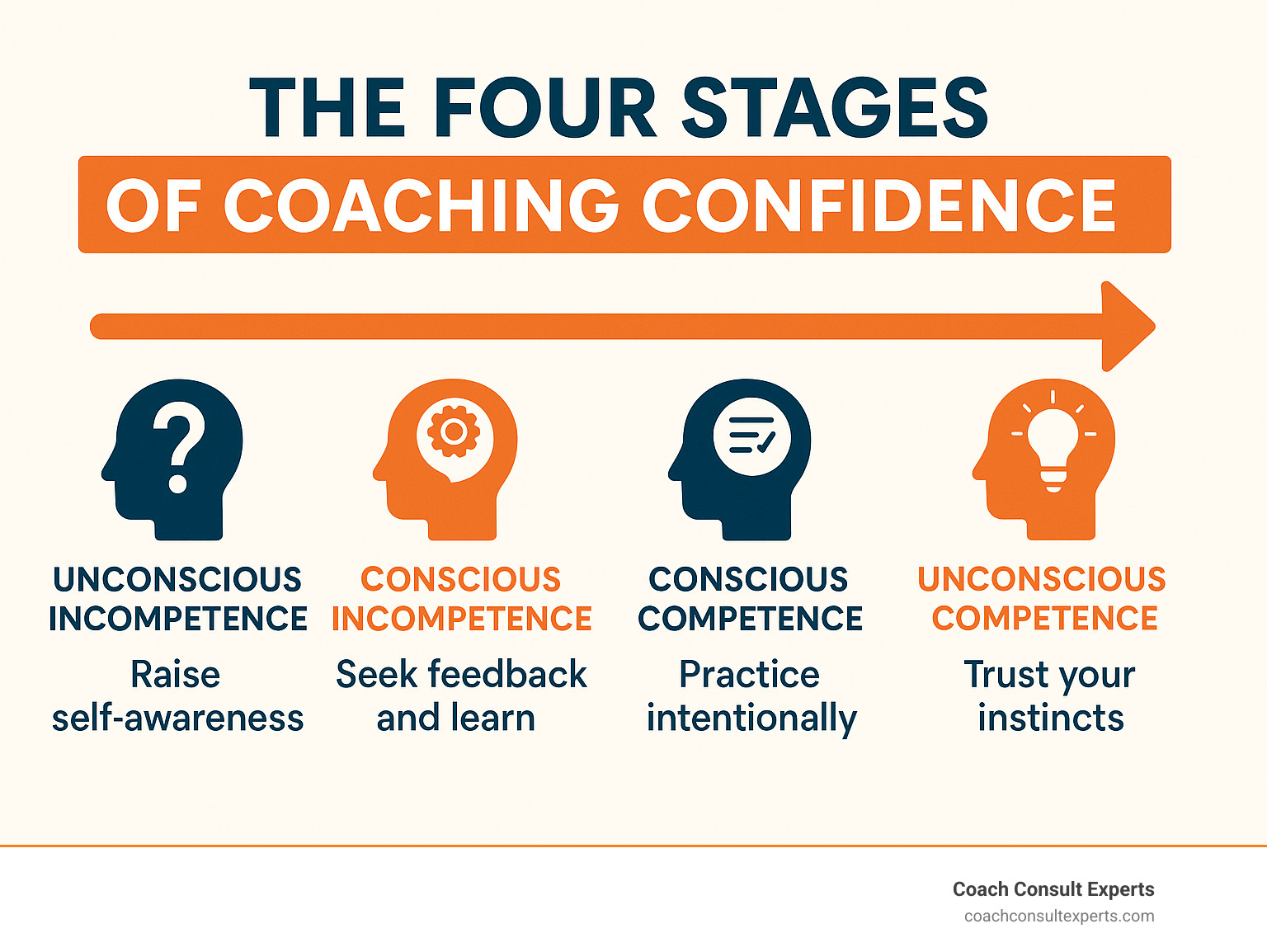Confident Coach: 7 Proven Steps to Powerful Success in 2025
Open uping Your Coaching Potential
A confident coach is a professional who helps people overcome self-doubt, build self-trust, and develop lasting confidence through structured guidance and practical tools. Whether you’re looking to become one or hire one, here’s what defines a confident coach:
- Definition: A professional who helps clients overcome limiting beliefs and develop authentic self-assurance
- Focus Areas: Self-doubt elimination, social skills development, mindset shifts, and fear management
- Key Skills: Active listening, positive reinforcement, accountability, and strategic goal-setting
- Difference from Therapy: Focuses on forward action rather than past healing (not clinical treatment)
- Typical Results: Improved communication, better decision-making, reduced anxiety, and improved performance
The journey to becoming a confident coach often begins with self-doubt. I remember my first coaching session—pacing nervously, questioning if I had anything valuable to offer. That feeling is universal among new coaches, regardless of their expertise.
Coaching confidence isn’t something you’re born with—it’s built through practice, feedback, and skill development. The most successful coaches don’t lack fear; they’ve learned to act despite it because they believe in the value they provide.
What separates struggling coaches from thriving ones isn’t talent but their approach to building confidence. Research shows that higher self-confidence is scientifically linked to better entrepreneurial success—and the same principles apply to coaching.
Building confidence as a coach requires three essential elements:
- Clarity of purpose: Knowing exactly who you help and how
- Mastery of skills: Developing and practicing core coaching competencies
- Real-world experience: Working with actual clients and learning from outcomes
Many aspiring coaches get stuck waiting to feel “ready enough” before starting. But confidence is earned through action, not acquired through waiting. The most transformative approach is taking small, calculated risks that gradually expand your comfort zone.
I’m Coach Mary Chege-Kamau, a Professional Certified Coach (PCC) with the International Coaching Federation who has helped thousands of professionals build confidence through changeal coaching techniques. As a confident coach myself, I understand the journey from self-doubt to self-assurance.

What Does a Confident Coach Do?
A confident coach doesn’t just offer advice—we create change. We work at that powerful intersection where mindset shifts meet practical skill development, helping clients find their inner strength and capacity for growth.
The science behind confidence is fascinating. Research shows that confidence isn’t merely a pleasant feeling—it’s a psychological state that directly impacts performance, decision-making, and resilience. When we coach clients on building confidence, we’re helping them create new neural pathways that foster empowering thought patterns.
Many of us at Coach Consult Experts practice “coach-sulting”—a blend of coaching and consulting that gives clients both reflective space for self-findy and concrete guidance for moving forward. Sometimes you need a thought-provoking question, and sometimes you need someone to say, “Here’s what works.”
Active listening sits at the heart of our approach. We don’t just hear words—we listen for underlying beliefs, unspoken fears, and hidden strengths. This deep listening creates the foundation for accountability, where the magic happens.
Confidence Coach vs. Therapist vs. Mentor
Understanding where coaching ends and other support roles begin is essential:
Confident coaches focus on present strengths and future possibilities. We work with functional individuals seeking growth, not clinical healing. Our approach is goal-oriented, using powerful questions and accountability to drive forward action.
Therapists may explore past trauma and psychological issues, often working with clinical diagnoses that require specific licensure. Their invaluable work focuses on healing within a medical framework.
Mentors share personal experience and specific expertise, typically providing industry-specific guidance. Their wisdom comes from “been there, done that” experience.
At Coach Consult Experts, we specialize in rapid subconscious change paired with supportive coaching. We’re not therapists—we don’t diagnose or treat mental health conditions. Instead, we help already-functional people break through invisible barriers. Learn more on our About page.
Traits of a Confident Coach
The most effective confident coaches embody several essential qualities:
Empathy allows us to truly understand your fears and aspirations without judgment. I remember working with a client terrified of public speaking—acknowledging this fear was our first step toward overcoming it.
Candor gives us the courage to speak truth even when it’s uncomfortable. Sometimes the most valuable thing a coach can say is what no one else will tell you.
Resilience enables us to steer setbacks and model bouncing back. Your coach should be living proof that challenges can be overcome.
Role-modeling confidence shows clients what authentic self-assurance looks like. This isn’t about having all the answers—it’s about demonstrating comfort with uncertainty while maintaining momentum.
Continuous learning keeps us sharp and humble. The best coaches never stop being students themselves.
As one client put it: “What impressed me most wasn’t that my coach had all the answers, but that she had such confidence in my ability to find them. Her belief in me became my belief in myself.”
Why & When Clients Need Confidence Coaching

People reach out for confidence coaching during pivotal moments when they feel stuck between who they are and who they want to become.
Impostor syndrome affects people across all achievement levels. I’ve worked with C-suite executives earning well over $500,000 annually who still wonder if they’re “good enough.” The corner office and impressive salary don’t automatically install confidence.
Career transitions trigger similar feelings. Whether eyeing a promotion, switching industries, or leaping into entrepreneurship, these crossroads often shake even the most capable people.
The numbers tell a compelling story about why confidence matters, especially for entrepreneurs. About 40% of new businesses close within their first year—many due to confidence issues rather than flawed business models. The entrepreneur who doubts their decisions often faces bigger challenges than market conditions.
Even public speaking—consistently ranking among America’s top fears—becomes manageable with proper confidence coaching. I worked with a brilliant marketing director who would feel sick before presentations. Six months of confidence work later, she was volunteering to lead company-wide meetings.
Research from UC Davis confirms what we see in practice: healthy self-esteem creates long-term benefits across multiple life domains.
Key Benefits You Can Deliver
As a confident coach, you’ll help clients experience profound shifts in how they see themselves.
Clarity becomes the first gift you offer. Many clients arrive unsure what they truly want or what’s holding them back. Through targeted questions, you’ll help them identify their core values and meaningful goals.
Self-trust follows naturally. Once clients recognize their own wisdom, they develop that internal compass for sound decision-making. I’ve watched people transform from constantly seeking external validation to trusting their judgment.
The performance edge that comes from confidence coaching often surprises clients. When we remove mental barriers, people naturally perform better. Energy previously spent on worry gets redirected toward creative solutions.
Perhaps most valuable is the long-term wellbeing that develops. Unlike the temporary high of a motivational speech, proper confidence coaching creates sustainable change.
Signs It’s Time to Hire a Confident Coach
Here are patterns that signal someone would benefit from working with a confident coach:
When you find yourself constantly comparing your journey to others’, you’re likely undermining your progress. Social media makes this particularly challenging.
Stalled goals often indicate a confidence issue rather than a strategy problem. When you repeatedly set objectives but fail to take action, something deeper is usually at play.
Watch for avoidance behaviors. Are you declining opportunities because you truly don’t want them, or because you’re afraid you’ll fail?
Negative feedback loops can become destructive. When self-criticism leads to poorer performance, which confirms your negative self-talk, you’re caught in a cycle that’s difficult to break alone.
Decision paralysis and perfectionism often travel together. When you can’t move forward because you’re terrified of making the wrong choice, a confidence coach can help.
As one client put it: “I was spending more time worrying about failing than actually working toward success. That’s when I knew I needed help breaking the cycle.”
Roadmap: How to Become a Confident Coach

The journey to becoming a confident coach isn’t just about gathering certificates—it’s about developing yourself holistically. Many aspiring coaches focus solely on credentials while neglecting the real confidence builders: experience, self-reflection, and authentic client work.
Start by finding your unique coaching niche. Reflect on your personal change stories—what confidence challenges have you overcome? The most compelling coaches often work in areas where they’ve walked the path themselves.
Developing your core coaching skills comes next. While books and courses provide essential foundations, nothing builds coaching confidence like working with real people facing real challenges. Even if you begin with friends or pro bono sessions, these experiences are invaluable.
Creating a sustainable business model deserves equal attention. At Coach Consult Experts, we’ve found that a 90-day package with biweekly sessions strikes the perfect balance, giving clients enough runway for meaningful change while providing a clear timeline for measurable results.
Core Skills & Qualities for a Confident Coach
The heart of becoming a confident coach lies in mastering several fundamental skills that transform ordinary conversations into life-changing experiences.
Active listening stands as perhaps the most powerful tool in your coaching arsenal. This isn’t just hearing words—it’s detecting the emotions, beliefs, and unspoken thoughts beneath them. When clients feel truly heard, change begins before you’ve even offered guidance.
Positive reinforcement becomes your catalyst for client momentum. By acknowledging progress (even small wins), you help clients build the confidence muscle through evidence of their capabilities.
Feedback mastery—the art of delivering constructive insights that inspire rather than discourage—can make the difference between a client who feels criticized and one who feels empowered to grow.
Your ability to help with strategic planning transforms vague hopes into achievable realities. Breaking down seemingly impossible goals into manageable steps is where many clients experience their first taste of genuine confidence.
Finally, embodying a growth mindset allows you to model the very resilience you’re teaching.
Certification & Training Options
While no legal requirement exists for coaching certification, quality training improves both your skills and market credibility.
The International Coach Federation (ICF) offers the industry’s most recognized credentials through their three-tier system: Associate Certified Coach (ACC), Professional Certified Coach (PCC), and Master Certified Coach (MCC). Each level requires specific training hours, documented coaching experience, and performance evaluation.
For specialized confidence coaching training, the American Confidence Institute provides certification programs that have trained over 350,000 people worldwide.
At Coach Consult Experts, we believe the most effective training combines formal education with hands-on experience. The certificate matters less than your ability to facilitate real change.
Pricing, Packaging & Finding Clients
New coaches typically start around $1,500 for a three-month package. As you build experience and testimonials, you can move toward the $3,000-$5,000 range, with elite specialized coaching commanding $5,000 and beyond.
Your pricing sends a message about the value you provide. Undercharging doesn’t just affect your income—it can actually undermine client confidence in your services.
Your first client will likely come from someone who already knows and trusts you. Start having authentic conversations within your existing network about your coaching journey.
Research on word-of-mouth marketing confirms that satisfied clients become your most powerful marketing channel, generating more than twice the sales of paid advertising with a 37% higher client retention rate.
Step-by-Step Launch Plan for a Confident Coach
If you’re ready to begin your journey as a confident coach, this practical roadmap will guide your first steps:
- Conduct focused market research to identify your ideal client’s specific confidence challenges
- Design your signature 90-day change journey with clear outcomes and frameworks
- Begin with one client from your network who’s a good fit for your approach
- Collect detailed feedback about the specific outcomes your client experienced
- Develop your scaling strategy using success stories and testimonials
As one of our coaches often says, “The difference between aspiring coaches and successful ones isn’t talent or credentials—it’s the willingness to begin before you feel ready.”
Proven Tools & Methods for Coaching Confidence

As a confident coach, your effectiveness depends not just on your own self-assurance, but on the proven methods you bring to each session.
NLP reframing helps clients recognize negative thought patterns that sabotage their confidence. I worked with a client who constantly told herself “I’m not a public speaker.” By reframing this to “I’m developing my speaking skills with each presentation,” we shifted her entire approach to professional communication.
Exposure therapy creates new neural pathways that override fear responses. One client who feared networking events started by attending for just 15 minutes, then gradually extended her time until she was confidently working the room.
The ABCDE model provides structure when emotions run high. When clients understand that their emotional reactions (C) come from their beliefs (B) about events (A), not the events themselves, they experience immediate relief. By disputing irrational beliefs (D) and embracing new perspectives (E), lasting change occurs.
Power poses might feel silly at first, but standing tall with shoulders back for just two minutes can actually change your hormone levels! I encourage clients to strike their power pose before important meetings.
Visualization works because our brains don’t fully distinguish between vividly imagined experiences and real ones. When clients mentally rehearse successful outcomes, they’re creating neural pathways for confidence.
Top Techniques You’ll Use with Clients
The Wheel of Fear has become one of our most powerful visual tools. By mapping core fears and seeing how they affect different life areas, clients gain perspective and control. As one client put it, “Once I could see my fears on paper, they lost some of their power over me.”
Micro-risks build confidence through small, progressive challenges. A client afraid of speaking up in meetings started by asking just one question per session, then gradually increased her participation until she was confidently leading discussions.
The Acknowledgments diary transforms how clients see themselves. This daily practice of recording achievements and positive feedback creates a powerful counterweight to negative self-talk.
Our Three-is-key drill builds reliable skill confidence through repetition. Having clients repeat challenging tasks until they achieve three consecutive successes creates muscle memory and evidence of capability. This technique works beautifully for exposure exercises like:
- Starting with one-on-one conversations before tackling group discussions
- Practicing presentations alone before adding friendly observers
- Recording video messages as preparation for live speaking
How Coaches Build Their Own Confidence

Being a confident coach means continually developing your own confidence alongside your clients.
Peer community has been my lifeline. When I’ve doubted my approach or struggled with a challenging client, connecting with fellow coaches has provided perspective and reassurance. We’re not meant to do this work alone.
Mentor coaching accelerates your growth exponentially. My mentor spotted patterns in my coaching I couldn’t see myself and offered targeted feedback that transformed my practice.
Self-reflection might sound simple, but it’s a powerful confidence builder. After each session, take 10 minutes to review what worked, what didn’t, and what you’ll do differently next time. This practice builds self-awareness without self-judgment.
Nothing builds coaching confidence like mastery experiences—those beautiful moments when you help a client achieve meaningful change. Each success becomes evidence of your capability.
Optimism training is about intentionally focusing on possibility. Research shows that even 10-20 seconds dwelling on a positive thought can begin shifting your mindset.
A coach in our community recently shared, “I stopped measuring myself against coaches with decades of experience and started celebrating my progress from where I began. That’s when my confidence really blossomed.”
Frequently Asked Questions about Confidence Coaching
What’s the difference between a confidence coach and life coach?
A confident coach focuses specifically on helping clients overcome self-doubt and build authentic self-assurance. While life coaches might touch on confidence as one aspect of their broader practice, a dedicated confidence coach brings specialized training and tools focused exclusively on building self-belief.
At Coach Consult Experts, we view confidence as the foundation upon which all other personal growth stands. Clients who develop genuine confidence naturally accelerate their progress in other areas of life.
Do I need certification to coach confidence?
No formal certification is legally required to call yourself a confidence coach, unless you’re offering services that cross into regulated territories like therapy or counseling.
That said, credible training significantly improves both your coaching skills and your market credibility. I recommend pursuing at least basic coach training through an ICF-accredited program, followed by specialized training in confidence-building methodologies.
Certification papers alone don’t create a confident coach. What truly matters is how you apply your knowledge, your commitment to continuous practice, and your genuine care for helping clients transform their lives.
How much can a confident coach earn?
Income potential varies widely based on experience, niche, business model, and marketing effectiveness:
- Entry-level coaches typically earn $30,000-$60,000 annually
- Established coaches with strong positioning can reach $60,000-$120,000
- Elite coaches with specialized expertise often earn $120,000-$200,000 or more
The most financially successful coaches typically blend multiple revenue streams—combining one-on-one coaching with group programs, digital courses, speaking engagements, and published content.
Coaches who focus on delivering and documenting changeal results naturally command higher fees over time as their reputation grows. As you help others build confidence, your own professional confidence and earning potential tend to rise in tandem.
Conclusion

The journey to becoming a confident coach is as rewarding as it is challenging. It’s not just about mastering techniques—it’s about embracing your own change while guiding others through theirs.
What matters most now isn’t what you’ve learned, but what you’ll do with this knowledge. Real confidence grows through action, not contemplation.
Your own confidence journey will mirror what your clients experience. You’ll face doubts, overcome obstacles, and celebrate breakthroughs—all of which enrich your ability to coach authentically.
At Coach Consult Experts, we’ve seen how rapid subconscious change combined with supportive group coaching creates transformative results. Our approach helps both new and experienced coaches break through their limitations and step into their full potential.
Think of confidence not as the absence of fear, but as the courage to move forward despite it. The most successful confident coaches aren’t those who never doubt themselves—they’re the ones who’ve learned to harness their doubts as fuel for growth and connection.
Your willingness to continually refine your skills, accept challenges, and serve clients with genuine care will determine your ultimate success. As one coach shared, “The day I stopped trying to be perfect and started being authentically myself was the day my practice truly took off.”
The world desperately needs more confident coaches who can guide others through uncertainty toward purposeful action. Each client you empower becomes a guide of possibility for countless others in their sphere of influence.
Ready to accelerate your journey as a confident coach? We invite you to explore our VIP Coaching programs specifically designed for coaches looking to lift both their confidence and their business. Together, we can transform your coaching potential into a powerful, profitable reality that changes lives—starting with your own.



